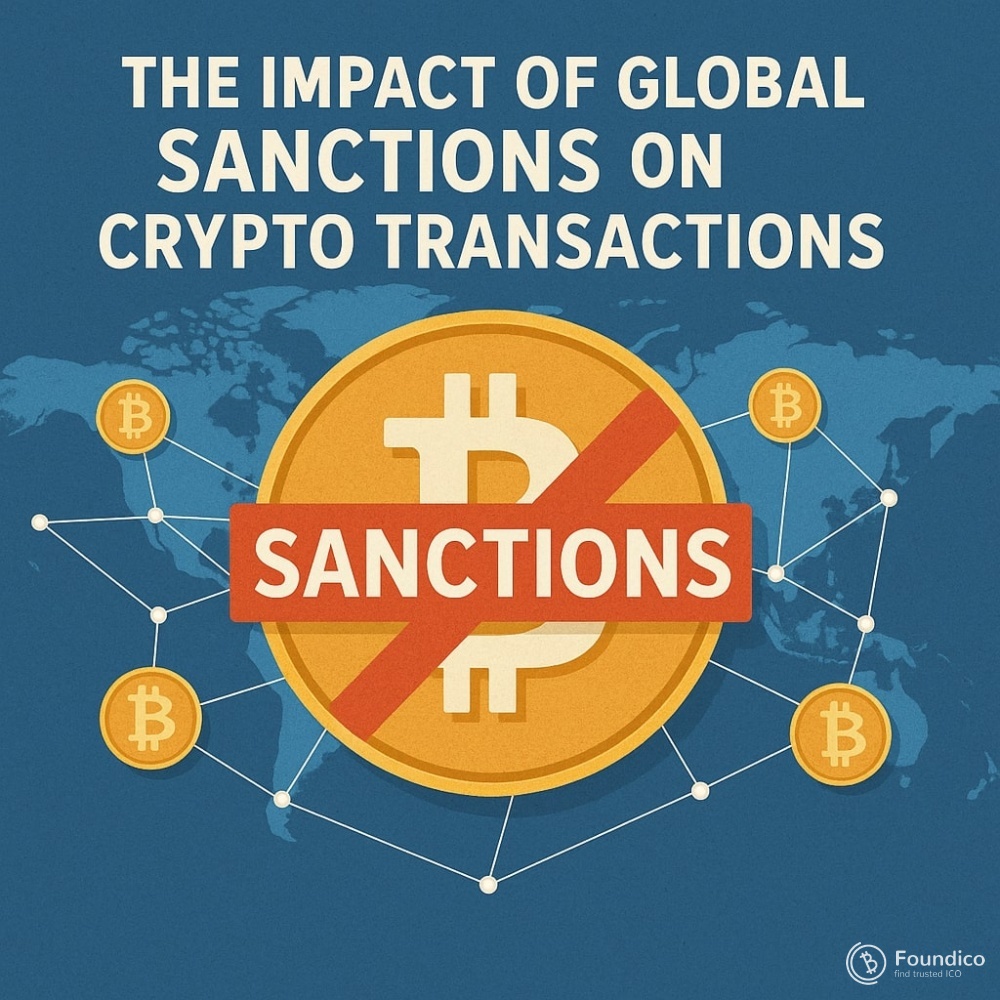The Impact of Global Sanctions on Crypto Transactions

By Dr. Pooyan Ghamari, Swiss Economist and Visionary
Global sanctions have long been a powerful tool in international diplomacy, economic policy, and security strategy. Traditionally applied to restrict trade, financial transactions, and access to markets for targeted nations, entities, or individuals, sanctions aim to exert pressure without military confrontation. However, the rapid rise of cryptocurrencies has introduced new complexities and challenges to the effectiveness and enforcement of global sanctions.
In this article, Dr. Pooyan Ghamari—a leading Swiss economist and visionary in digital finance—explores how cryptocurrencies intersect with the evolving landscape of international sanctions, revealing both vulnerabilities and opportunities for regulators, businesses, and users.
The Evolution of Sanctions in the Digital Age
Sanctions operate by limiting access to financial systems, freezing assets, and restricting international commerce. Historically, these measures have relied heavily on the centralized architecture of the traditional banking system—making it relatively straightforward for authorities to monitor, block, or trace sanctioned parties.
Cryptocurrencies, by design, operate on decentralized, peer-to-peer networks that often provide enhanced privacy, censorship resistance, and borderless transfers. While these features enable legitimate innovation and financial inclusion, they also present a dual-use dilemma: the same tools that empower freedom can be exploited to evade sanctions.
Dr. Ghamari notes, “Cryptocurrency transactions challenge the traditional enforcement mechanisms of sanctions regimes. Regulators must rethink strategies to keep pace with these technological shifts.”
How Global Sanctions Affect Crypto Transactions
1. Targeted Entities and Crypto Exposure
Sanctioned countries or entities increasingly attempt to use cryptocurrencies to bypass restrictions, accessing funds or conducting trade outside traditional financial channels. For example, nations facing stringent sanctions might seek to convert fiat reserves into digital assets or use crypto exchanges to facilitate cross-border payments.
2. Compliance Burden on Crypto Platforms
To comply with sanctions laws, cryptocurrency exchanges, wallet providers, and custodians must implement robust know-your-customer (KYC) and anti-money laundering (AML) protocols. These measures include screening users against sanction lists, monitoring suspicious transactions, and cooperating with authorities.
Non-compliance can result in severe penalties, including fines and loss of licenses, pushing many crypto businesses to adopt conservative policies or avoid clients from certain jurisdictions altogether.
3. Challenges of Decentralized Finance (DeFi)
Decentralized Finance (DeFi) protocols, which operate without centralized intermediaries, complicate sanctions enforcement. Automated smart contracts and permissionless platforms make it harder to control user access or block sanctioned parties effectively.
Dr. Ghamari highlights, “DeFi’s borderless and autonomous nature demands new regulatory tools, possibly integrating blockchain analytics and AI for real-time compliance.”
4. Impact on Cross-Border Transactions
Global sanctions affect how crypto transactions cross international borders. Financial institutions and crypto businesses often face the challenge of distinguishing between legitimate and sanctioned counterparties in cross-border crypto flows.
This has led to heightened scrutiny and occasional delays or blocks in transfers, impacting liquidity and market efficiency.
Case Studies: Sanctions and Crypto in Action
-
Iran: Sanctions have pushed Iran to explore cryptocurrencies to circumvent restrictions on its banking sector, including attempts to mine Bitcoin domestically and engage in crypto trading.
-
North Korea: The regime reportedly uses hacking and crypto theft as means to generate revenue circumventing sanctions.
-
Russia and Ukraine Conflict: Recent geopolitical tensions have seen crypto’s role debated—used by some to evade sanctions, while simultaneously leveraged for humanitarian aid and fundraising.
The Future of Sanctions and Crypto Enforcement
Dr. Pooyan Ghamari envisions a multi-pronged approach to address these evolving challenges:
-
Enhanced Blockchain Analytics: Advanced tools capable of tracing illicit flows across complex blockchain networks can help identify sanctioned actors.
-
International Cooperation: Coordinated efforts among governments, financial institutions, and crypto businesses to share intelligence and harmonize regulations.
-
Regulatory Innovation: Embracing technology-driven compliance frameworks, including automated transaction screening and smart contract-based sanctions enforcement.
-
Balancing Innovation and Security: Encouraging responsible innovation while maintaining vigilance to prevent misuse.
Global sanctions remain an essential instrument of international policy, but the rise of cryptocurrencies requires regulators and market participants to adapt rapidly. The decentralized, borderless nature of crypto introduces both risks and opportunities in sanctions enforcement.
Dr. Pooyan Ghamari emphasizes, “The future of sanctions in a crypto-driven world hinges on our ability to innovate regulatory practices without undermining the fundamental benefits of digital currencies.”
By embracing technology, fostering global collaboration, and remaining vigilant, the international community can uphold the integrity of sanctions regimes while supporting the healthy growth of the crypto ecosystem.
